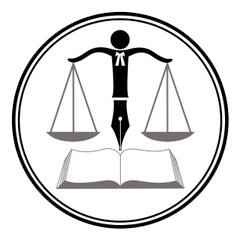This week’s top three summaries: R v Kruk, 2024 SCC 7: #common sense, R v Ali, 2024 ONSC 1356: s276 #inconsistencies, and R v Shariffabrar, 2024 ONSC 1304: 276 #sex trade.
Our firm focuses on representation in complex criminal trials and criminal appeals. We also provide ghostwriting services to other firms for written submissions. Consider us for your appeal referrals or when you need written submissions on a file.
Our lawyers have been litigating criminal trials and appeals for over 16 years in courtrooms throughout Canada. We can be of assistance to your practice. Whether you are looking for an appeal referral or some help with a complex written argument, our firm may be able to help. Our firm provides the following services available to other lawyers for referrals or contract work:
- Criminal Appeals
- Complex Criminal Litigation
- Ghostwriting Criminal Legal Briefs
Please review the rest of the website to see if our services are right for you.
R v Kruk, 2024 SCC 7
[March 1, 2025] Appeals: Ungrounded Common Sense Assumption, Witnesses: Judicial Common Sense Use in Trial [Majority Reasons by Martin J. with Wagner C.J. and Côté, Kasirer, Jamal and O’Bonsawin JJ. concurring.]
AUTHOR’S NOTE: This case is a rare instance of judges deciding to limit their own discretion. Here, appellate judges are limiting their ability to interfere in credibility findings of trial judges. While the particular application here may be disappointing to the defence (ie. a judge’s ability to rely on testimony from a woman as to a physical sensation despite heavy intoxication), that should not overtake the overall defence of the common sense assumption at trial by the SCC. While listed (and analogous) rape myths remain prohibited from reasoning, the SCC has decided that appellate courts cannot interfere where a judge uses a common sense assumption about human behaviour to assess credibility except where their use amounts to “palpable and overriding error”. Fundamentally, this allows trial judges to use their experience and common sense openly in reasons for judgment. There is nothing bad about this for the defence. This case should be used by the defence to remind trial judges that they can use their common sense about human behaviour to reject the credibility of witnesses. “Reasoning about how people generally tend to behave, and how things tend to happen, is not only permissible, it is often a necessary component of a complete testimonial assessment.” (Para 72) Defence have to remain wary of the use of rape myths in sexual assault defences, but otherwise the field is open.
[1] These appeals in two sexual assault matters concern the standard for appellate intervention with respect to a trial judge’s credibility and reliability findings in a criminal trial and the appropriate role of common sense when assessing the evidence of witnesses. The respondents ask this Court to recognize a novel rule referred to as the “rule against ungrounded common-sense assumptions”. A breach of this proposed rule would provide a new, stand-alone basis for correctness review of credibility and reliability assessments whenever an appellate court determines that a trial judge has relied on a common-sense assumption that was not grounded in the evidence. This significant departure from established standards of review in respect of credibility and reliability assessments in criminal cases has been applied by some appellate courts — often in sexual assault cases that turn on the competing accounts of the accused and the complainant.
[2] For the reasons provided below, no such change to the law is warranted, and I decline to recognize the rule against ungrounded common-sense assumptions as giving rise to an error of law. The current standards under which appellate courts review trial judgments are well-designed, long-established, and promote the fair assessment of testimony. There is no need to fashion a new rule of law against any assumption not supported by particular evidence in the record to strive for what existing rules already accomplish. Furthermore, the proposed rule is not a coherent extension of existing errors of law pertaining to myths and stereotypes against sexual assault complainants. Adopting it would undercut the functional and flexible approach to appellate intervention and create mischief across the entire criminal law.
[4]….Using the rule against ungrounded common-sense assumptions, the Court of Appeal found that the trial judges erred in law by making assumptions about human behaviour not grounded in the evidence. Having rejected this new error of law, I would assess the trial judges’ findings using the proper standard of palpable and overriding error. I conclude that they made no such errors in their credibility and reliability findings. In the result, I would allow both appeals and restore the convictions.
[29]….The proponents of the rule against ungrounded commonsense assumptions argue that if reliance on myths and stereotypes about complainants is an error of law, then all unfounded and speculative assumptions about all witnesses, including the accused, should be treated in the same manner.
[30] With respect, this impulse towards symmetry and formally identical treatment is unwarranted. It reflects a misunderstanding of the distinct body of law associated with myths and stereotypes in sexual assault cases, which developed in a particular historical context to protect complainants alone.
(a) The Role of Common Sense in Evaluating a Witness’s Testimony
[71] First, the proposed rule is incompatible with the often inextricable role common-sense assumptions play in credibility and reliability assessments. Testimonial assessment is largely based on inductive reasoning and the particular circumstances of the case: it requires the trier of fact to make assessments based on probable interpretations of the evidence (R. v. Calnen, 2019 SCC 6, [2019] 1 S.C.R. 301, at para. 111; R. v. Munoz (2006), 86 O.R. (3d) 134 (S.C.J.), at para. 23). Testimonial assessment therefore necessarily depends on the life experience a trial judge brings to their task, which, in turn, informs the common-sense inferences they draw from what they see before them.
[72] It is widely recognized that testimonial assessment requires triers of fact to rely on common-sense assumptions about the evidence. In R. v. Delmas, 2020 ABCA 152, 452 D.L.R. (4th) 375, at para. 31, aff’d 2020 SCC 39, [2020] 3 S.C.R. 780, the Alberta Court of Appeal observed that triers of fact may rely on reason and common sense, life experience, and logic in assessing credibility. In R. v. R.R., 2018 ABCA 287, 366 C.C.C. (3d) 293, the same court held that triers of fact “must invariably fall back on their common sense, and their acquired knowledge about human behaviour in assessing the credibility and reliability of witnesses” (para. 6). Finally, in R. v. S. (R.D.), [1997] 3 S.C.R. 484, this Court considered that the life experience of trial judges — though of course not a substitute for evidence, and subject to appropriately circumscribed limits — “is an important ingredient in the ability to understand human behaviour, to weigh the evidence, and to determine credibility”, and assists with a “myriad of decisions arising during the course of most trials” (para. 13). Reasoning about how people generally tend to behave, and how things tend to happen, is not only permissible, it is often a necessary component of a complete testimonial assessment.
[73] In turn, common-sense assumptions necessarily underlie all credibility and reliability assessments. Credibility can only be assessed against a general understanding of “the way things can and do happen”; it is by applying common sense and generalizing based on their accumulated knowledge about human behaviour that trial judges assess whether a narrative is plausible or “inherently improbable” (R. v. Kiss, 2018 ONCA 184, at para. 31 (CanLII); R. v. Adebogun, 2021 SKCA 136, [2022] 1 W.W.R. 187, at para. 24; R. v. Kontzamanis, 2011 BCCA 184, at para. 38 (CanLII)). Common sense underpins well-established principles guiding credibility assessment — including the now-universal idea that witnesses who are inconsistent are less likely to be telling the truth — and assists in assessing the scope and impact of particular inconsistencies. Reliability also requires reference to common-sense assumptions about how witnesses perceive, remember, and relay information, invoking generalizations about how individuals tend to present information that they are remembering accurately and completely, as opposed to matters about which they are unsure or mistaken. A trial judge may, for example, infer that a witness was credible yet unreliable because they appeared sincere but displayed indicia that tend to suggest an unclear or uncertain memory (e.g., equivocation, phrases such as “hmm . . . let me see”, long pauses, or failure to provide much detail).
[75] By prohibiting ungrounded common-sense assumptions, the proposed rule interferes with the necessary recourse to common sense as a part of testimonial analysis. Trial judges are uniquely tasked with assessing the testimony they hear and interpreting the range of possible inferences arising from the evidence. They must be able to rely not only on their judicial experience as fact-finders, but also on their common sense and the generalized expectations it generates about human behaviour. Trial judges will naturally rely on “ungrounded” assumptions about human behaviour in their testimonial assessments and thereby draw on factors that lie outside the immediate record. The judicial function entitles them to do so without requiring extrinsic evidence to support each and every one of their conclusions.
(b) Established Standards of Review for Credibility and Reliability Assessments
[85] The palpable and overriding error standard strikes the appropriate balance between deference to the factual findings of the trial judge and the need for meaningful review of criminal cases on appeal. Although this standard is duly deferential to the trial judge’s unique vantage point and expertise, even under this more deferential standard, appellate courts must determine whether the trial judge’s findings on credibility and reliability are “the product of an evidence-based and context-specific assessment” of the witness’s testimony (R. v. Pastro, 2021 BCCA 149, 71 C.R. (7th) 296, at para. 67). Trial judges must “clearly articulat[e]” the basis for their assessments and point to “a nexus to the facts of the case” as opposed to relying on “assumptions about expected responses or conduct” (Tanovich, at p. 92). Yet, the proposed rule against ungrounded common-sense assumptions undercuts the rationale for the palpable and overriding error standard by inviting appeal courts to examine the specific language of particular common-sense reasoning and scrutinize it on a standard of correctness. The ensuing appellate review exercise quickly becomes highly interventionist, cumbersome, and almost entirely unpredictable.
[90]….However, in my view, it remains preferable to assess whether an error has been made in the first place based on the palpable and overriding standard. An overriding error is necessarily material because it must be shown to have affected the trial judge’s decision — but it is important to emphasize that an overriding error affects not just an isolated finding of fact, which may or may not have played a role in reaching the outcome, but the trial judge’s decision as a whole. It is not enough for an appellant asserting palpable and overriding error to pull at leaves and branches and leave the tree standing; the entire tree must fall (South Yukon Forest Corp. v. Canada, 2012 FCA 165, 431 N.R. 286, at para. 46, cited in Benhaim v. St-Germain, 2016 SCC 48, [2016] 2 S.C.R. 352, at para. 38, and Salomon v. Matte-Thompson, 2019 SCC 14, [2019] 1 S.C.R. 729, at para. 116).
[96] The standard of review will be correctness if the error alleged is a recognized error of law. Nothing in these reasons should be taken to limit the scope of existing errors of law relating to testimonial assessments that this Court has previously approved. Such errors may include reliance on myths and stereotypes about sexual assault complainants, as well as any improper and incorrect assumptions about accused persons that run contrary to fundamental principles such as the right to silence and the presumption of innocence. Testimonial assessments may also become vulnerable to correctness review for reasonable apprehension of bias (S. (R.D.), at paras. 91-141), making a finding of fact for which there is no evidence (R. v. J.M.H., 2011 SCC 45, [2011] 3 S.C.R. 197, at para. 25; Schuldt v. The Queen, [1985] 2 S.C.R. 592, at p. 604), and improperly taking judicial notice (see, e.g., R. v. Poperechny, 2020 MBCA 81, 396 C.C.C. (3d) 478). As discussed, reliance on stereotypes other than myths and stereotypes about sexual assault complainants, but which are similarly rooted in inequality of treatment, may also amount to errors of law, and it remains open to all parties to argue as much in future cases. The list of errors of law is not closed — but the rule against ungrounded common-sense assumptions is not on it.
[97] Absent an error of law, the standard of review will be palpable and overriding error. The reviewing court must first determine whether the erroneous reliance on the assumption is palpable, in that it is “plainly seen”, “plainly identified”, or “obvious” (see Housen, at paras. 5-6; R. v. Clark, 2005 SCC 2, [2005] 1 S.C.R. 6, at para. 9; Benhaim, at para. 38, citing South Yukon Forest Corp., at para. 46). Palpable errors in this context will include, for example, where the assumption in question is obviously untrue on its face, or where it is untrue or inapplicable in light of the other accepted evidence or findings of fact. Although trial judges are clearly best placed to make factual findings and assess the accuracy of generalizations, appellate courts can balance the need for deference to those findings with employing their own common sense to determine whether the presumption was clearly illogical or unwarranted so as to make out a palpable error. Appellate courts are routinely tasked with, for example, considering whether based on “logic and human experience” a particular piece of evidence was relevant or whether an accused’s after-the-fact conduct was consistent with that of a guilty person (R. v. Corbett, [1988] 1 S.C.R. 670, at p. 715; see R. v. White, 2011 SCC 13, [2011] 1 S.C.R. 433, at para. 17). In the context of factual generalizations, so long as the assessment remains focused on whether there was any palpable error, such an exercise remains an integral part of the judicial function of a reviewing court.
[98] Once a palpable error has been identified, the reviewing court must also find that the erroneous reliance on the assumption was overriding, in that it is “shown to have affected the result” or “goes to the very core of the outcome of the case” (Clark (2005), at para. 9; Benhaim, at para. 38, citing South Yukon Forest Corp., at para. 46). If it cannot be shown that the error was palpable and overriding, a trial judge’s assessment of credibility or reliability will be entitled to deference and there will be no basis for appellate intervention.
[99] Given that I have found that a breach of the proposed rule against ungrounded common-sense assumptions should not be recognized as an error of law, many of the assumptions identified in the cases below, including those in the cases before this Court, in fact should have been reviewed for palpable and overriding error. Such an approach accords due deference to the trial judges’ factual findings and the role common sense played in their testimonial assessments. At the same time, it should also be emphasized that common sense is far from a catch-all phrase that licenses any form of reasoning, no matter how faulty. Common sense is not always “common”, does not always make “sense”, and worst of all, may be based on falsehoods or discriminatory beliefs. However, so long as the trial judge’s use and invocation of common sense is appropriately constrained by the legal principles applicable to appellate review in general, there is nothing inherently objectionable about its use in testimonial assessment….
IV. Application
[100] Having rejected the proposed rule, I would allow both appeals and restore the convictions. In both cases, the Court of Appeal erred in using the rule against ungrounded common-sense assumptions and reviewing the alleged improper generalizations on a correctness standard. As a result, the court failed to adopt the required contextual and functional review, leading it to overturn the trial judges’ decisions without a proper basis to do so.
A. Mr. Kruk
[102] In Mr. Kruk’s case, the Court of Appeal erred in concluding that the trial judge relied on speculative reasoning in accepting the complainant’s evidence based on his observation that it “is extremely unlikely that a woman would be mistaken about that feeling [of having a penis inside her]” (trial reasons, at para. 68 (emphasis added)). In context, it is clear that the impugned statement, while perhaps unfortunately worded, was in fact not a generalization at all, but a specific articulation of the judge’s response to a theory advocated by the defence.
[109] Where a person with a vagina testifies credibly and with certainty that they felt penile-vaginal penetration, a trial judge must be entitled to conclude that they are unlikely to be mistaken….
B. Mr. Tsang
[110] In Mr. Tsang’s case, the Court of Appeal erred in concluding that the judge’s assessment of the accused and the complainant’s credibility was fatally affected by three material unfounded assumptions about normal behaviour: a person would not ask to be spanked “out of the blue”; a controlling person would not refrain from engaging in vaginal intercourse because they could not find a condom; and a person would not abruptly drive away from someone with whom they had just had consensual sex. Again, these first two assumptions were, in fact, not assumptions but statements that reflected the trial judge’s reasoning process and findings of fact. The third assumption, though truly an assumption and one that was palpably incorrect, was not overriding, as it did not affect the core of the trial judge’s finding of guilt.
[124] I agree that the judge erred here in relying on an assumption that people do not drive off quickly after consensual sexual encounters. However, without the rule against ungrounded common-sense assumptions in play, this assumption again falls to be assessed under the palpable and overriding error standard. This is the standard the Court of Appeal should have applied, and had it done so, it would have found no basis for reviewable error.
V. Disposition
[127] I would allow both appeals, set aside the orders of the British Columbia Court of Appeal, and restore the convictions.
R v Ali, 2024 ONSC 1356
[March 11, 2024] Section 276: Inconsistencies involving Past Sexual Acts [B. P. O’Marra J.]
AUTHOR’S NOTE: Establishing inconsistencies is the bread and butter of criminal cross-examination. It remains widely accepted that liars have a hard time keeping their story straight. Consequently, even where most past sexual acts are inadmissible evidence in a sexual assault trial, the ability demonstrate inconsistencies about past sexual behaviour in some way that is relevant to the current allegation will be permissible. Here, the complainants were untruthful about to police about their prior involvement and knowledge of certain aspects of the sex trade. The trial judge permitted them to be cross-examined in this respect.
OVERVIEW
[1] The applicants were jointly charged on a multi-count indictment with a series of human trafficking offences, as well as possession of child pornography for the purpose of transmission contrary to the Criminal Code, R.S.C., 1985, c. C-46. The time frame in the indictment is from September and October 2020. The two complainants, A.C. and B.W., were 15 and 16 years old respectively at the time of the alleged offences.
[2] The complainants were interviewed by members of the Toronto Police Service and York Regional Police several times from October 2020 through March of 2021. Over time, the police learned that the two complainants had been the subjects of human trafficking by another person named Woodley who was unconnected to the two applicants. The information indicated that the two complainants had been involved in that other human trafficking scheme preceding and during the time frame of the alleged offences by the applicants. In some of their initial interviews by police, the complainants denied that they had been involved in the sex trade with persons other than the applicants. They also denied knowing how the sex trade worked before they met the applicants. This included denying any prior knowledge of websites such as Leo List, where advertisements and photos are posted online to attract sex-trade customers.
[3] The applicants applied pursuant to s. 276 of the Criminal Code for leave to cross examine the complainants in regard to some aspects of their involvement in the sex trade with Woodley. The Crown opposed any such questions.
[4] Counsel for Ms. Ali did not file an affidavit in support of the application but relied on various recorded statements of the complainants. Counsel for Mr. Graham filed a brief affidavit in support of the application.
[5] On November 23, 2023, the applications were allowed in part. The jury trial has now been completed. These are my reasons.
The Legal Framework
[7] The headnote in R. v. Barton, 2019 SCC 33, [2019] 2 S.C.R. 579, succinctly summarizes the scope and purposes of s. 276 of the Criminal Code and its applicability to proceedings such as allegations of human trafficking:
A. Section 276 and Prior Sexual Activity Evidence
Section 276 of the Criminal Code governs the admissibility of evidence about of evidence about a complainant’s prior sexual activities and the uses to which that evidence may be put. The animating purposes behind the s. 276 regime are to protect the integrity of the trial by excluding irrelevant and misleading evidence, protect the accused’s right to a fair trial, and encourage the reporting of sexual offences by protecting the security and privacy of complainants. Section 276(1) provides that in proceedings in respect of certain listed offences, evidence of a complainant’s prior sexual activity is not admissible to support an inference that, by reason of the sexual nature of that activity, the complainant is more likely to have consented to the sexual activity in question or is less worthy of belief. This section is categorical in nature and applies irrespective of which party led the evidence. Section 276(2) provides that evidence of the complainant’s prior sexual activity adduced by or on behalf of the accused is presumptively inadmissible unless, after certain procedures have been followed, the trial judge rules to the contrary. The s. 276 regime applies to any proceeding in which an offence listed in s. 276(1) has some connection to the offence charged, even if no listed offence was particularized in the charging document. Crown-led prior sexual activity evidence is subject to the common law principles articulated in R. v. Seaboyer, 1991 CanLII 76 (SCC), [1991] 2 S.C.R. 577.
[8] Section 276 of the Criminal Code maintains a bar on “twin myth” reasoning, specifically the inferences that because of prior sexual activity, a complainant is either more likely to have consented or is less worthy of belief.
[9] The right to make a full answer and defence does not entitle the accused to procedures that would distort the truth-seeking function of a trial by permitting the admission of irrelevant and prejudicial material: R. v. Darrach, 2000 SCC 46, [2000] 2 S.C.R. 443, at para. 24.
[10] The right to cross examine is not unlimited. Section 276(3) of the Criminal Code ensures that the right to cross examine a complainant must be assessed taking into account all of the factors in that subsection: R. v. R.V., 2019 SCC 41, [2019] 3 S.C.R. 237, at paras. 40-41. Where cross examination on prior sexual activity is permitted, the questioning must be tightly controlled. In certain cases, it may be appropriate to approve specific wording of the questions to be asked: R.V., at paras. 8, 73.
[11] A court might require the use of agreed statements of fact to ensure that evidence of prior sexual activity stays within proper bounds: R. v. Goldfinch, 2019 SCC 38, [2019] 3 S.C.R. 3, at para. 98.
[12] The affidavit in support of an application pursuant to s. 276 must establish a connection between the complainant’s sexual history and the accused’s defence. There would have to be evidence to establish the link between the potential defences and the prior sexual conduct: Darrach, at para.56.
Scope of the Applications.
[14] The applicants applied to cross examine the complainants on the fact they were engaged in the sex trade with persons other than the applicants before and during the time frame of the charges against the applicants. They did not apply to cross examine the complainants on any other sexual activity. The questions would be restricted to the complainants’ knowledge of and experience in taking photos and videos to be posted in online advertisements for sexual services. They also sought to cross examine in regard to the complainants’ communications with prospective customers for sexual services.
[15] The applicants rely on alleged untruths and inconsistencies in the statements given over time by the complainants to the police. A.C. admitted that she had been untruthful in her first statement as to her prior involvement and knowledge of certain aspects of the sex trade.
[16] The basis of these applications was to attack the complainants’ credibility based on specific prior statements they gave.
[17] The applicants would not suggest the complainants were less credible because they had prior involvement in the sex trade. Rather, they would challenge the complainants’ credibility based on specific, limited instances of untruths and/or inconsistencies related to their prior and ongoing involvement in the sex trade with someone unconnected to the applicants.
[18] I agree with Mr. Miglin on behalf of Ms. Ali that the alleged untruths and/or inconsistencies on material issues provide a valid basis for the applications. In the particular circumstances of this case, it was not necessary that his client provide an affidavit in support of the applications.
[19] I also agree with counsel for the applicants that to prohibit cross examination on specific instances of untruths and/or inconsistencies would distort the truth-seeking function of the trial. If the focused cross examination on specific issues was prohibited, the jury would be left with the false image that the two complainants had no prior knowledge or involvement in the sex trade. These would be classic instances of prior untruthful and/or inconsistent statements.
THE RESULT
[24] The two complainants, A.C. and B.W., can only be cross examined on specific portions of their witness statements and preliminary hearing transcript where it is alleged there are inconsistencies and/or untruths about their involvement in the sex trade beyond what is alleged against the two applicants. Before the applicants refer to an alleged inconsistency and/or untruth, they must first show the witness the specific portion of their statement or testimony that they are referencing.
[25] In cross examination of either complainant, the applicants are permitted to refer to alleged inconsistencies and/or untruths related to the circumstances in which photos were taken for use in the sex trade. They are also permitted to refer to alleged inconsistencies and/or untruths related to the complainants’ knowledge or involvement with Leo List.
[27] Further, there will be a mid-trial instruction to accompany the limited cross examination in the stipulated areas. The overriding instruction will be that the jury must not consider evidence that the two complainants were previously or contemporaneously involved in the sex trade as rendering them less credible by virtue of that alone. The jury may consider any specific inconsistencies or untruths based on their statements to the police as relevant to their credibility. There will be a final instruction in this regard in my charge to the jury.
R v Shariffabrar, 2024 ONSC 1304
[March 1, 2024] S. 276: Prior Sex Trade Experience in Defence of Procuring [André J.]
AUTHOR’S NOTE: Like in the case above, here the evidence that a complainant was previously involved in the sex trade made it less probable, as a matter of logic and common sense, that the complainant’s involvement in that industry during the period charged was due to the actions of the accused. To meet the threshold of relevance, the evidence only needs to have some tendency to make the existence or non-existence of the material fact more or less likely. Prejudicial conclusions based on such evidence can be controlled by instructions to a jury or self instruction in judge alone trials.
[1] In a decision released on September 26, 2022, I ruled that the anticipated evidence with which the defendant seeks to cross-examine L.S., the complainant, is admissible in the trial and, as a result, a Stage Two hearing is warranted pursuant to s.276(2) of the Criminal Code (“the Code”).
[2] L.S. testified that on or about May 25, 2020, she went to the home of a friend where she smoked weed and had a drink of alcohol. She lost all memory of what happened afterwards and woke up in the condominium of Mr. Shariffabrar. Over the next few days, he plied her with drugs and alcohol. He had her take sexually suggestive photographs which were posted on a site called Leolist on May 28, 2020, at 12:34 a.m. Video evidence adduced by the Crown, on consent, showed L.S. entering and exiting Mr. Shariffabrar’s residence sometimes accompanied by unknown males who appeared to remain in the residence for approximately ten to twenty minutes before exiting. L.S. testified that during the time she spent at the apartment, she was given such drugs as cocaine, Xanax, methamphetamine, and alcohol. She testified further that Mr. Shariffabrar also directed her to give him the money which she received for the sexual services she provided.
[3] Under cross-examination, it was revealed that L.S.’s cellphone connected to the Wi-Fi of a hotel in Guelph from May 29, 2020, from 11:07 p.m. to May 30, 2020, to 11:40 a.m., and to a Brampton hotel at 1:51 p.m. on May 30, 2020. It is the evidence on which the Applicants seek to cross-examine L.S.
GROUNDS FOR THE APPLICATION
[4] The Applicants provide the following grounds for the Application:
The Applicants believe that the questioning of L.S. is necessary on the issues for the following reasons:
a. To make full answer and defence,
b. To test the nature of the relationship between the Applicants and L.S.,
c. To question L.S. as to why her cellphone device location was tagged on May 29, 2020, to May 30, 2020, at the “Days Inn” in Guelph and the “Monte Carlo Inn” in Brampton, on May 30, 2020,
d. To question L.S. as to whether she was at these locations providing sexual services for consideration independently, voluntarily and willingly, prior to meeting the Applicants, which the evidence during trial suggests was on June 1, 2020, at the condominium on Brickstone Mews, in Mississauga.
[5] The Applicants maintain that the anticipated evidence is admissible given that:
a) The evidence does not engage the twin myths set out in s.276(1)(a) of the Code,
b) The anticipated evidence has significant probative value that outweighs any prejudicial effect its admission may have, and
c) The prejudice that may flow from the admission of the evidence is attenuated by the fact that this is a judge-alone trial.
ANALYSIS
[9] In R. v. Darrach, [2000] 2 S.C.R. 443, the SCC noted that s.276 does not create a blanket exclusion of evidence of other sexual activity. It merely prohibits the admission of such evidence solely to support the inference that a complainant is more likely to have consented to the alleged assault or is less worthy of belief by virtue of that other sexual activity.
[10] The Applicants submit that adducing the cellphone device evidence is meant to challenge the complainant’s position that the Applicants procured her into providing sexual services for consideration. They submit, further, that the ability to question L.S. on these locations will provide the court with a more fulsome picture of the sexual services provided during the time period in the indictment without invoking the twin myths.
[11] Ms. Pemberton relies on the decision in R. v. Williams, 2020 ONSC 6347 to support her submissions regarding the anticipated evidence’s relevance. At para. 59, Stribopoulos J. noted, in a case involving similar charges, that “evidence of her involvement in the sex trade before the complainant became involved with the accused, or after their relationship ended, appeared relevant. If true, it makes it slightly less probable, as a matter of logic and common sense, that the complainant’s involvement in that industry during the period charged in the indictment was due to the accused’s actions and by implication, much more significantly, that he exerted influence over her for that purpose.” Ms. Pemberton submits, further, that to minimize any prejudicial effects, the trial judge may prohibit any questioning about the salacious details about any sexual activity L.S. may have engaged in at hotels in Guelph and Brampton.
[12] I agree with Stribopoulos J.’s observation in Williams, at para. 60, that the complainant’s prior involvement in the sex trade does not necessarily foreclose the accused having encouraged her participation in the sex trade. Stribopoulos J. rightly noted however, that this possibility does not render the evidence irrelevant. As the Crown correctly points out, even someone who has voluntarily been involved in the sex trade could be coerced into being involved in the trade.
[13] I also adopt the following observant of Doherty J.A. in R. v. L.S., 2017 ONCA 685, 40 C.R. (7th ) 351, at para. 89 that,
Evidence does not have to establish or refute a fact in issue to be relevant; it need only, as a matter of common sense and human experience, have some tendency to make the existence or non-existence of that material fact more or less likely.
[14] In my view, the close proximity of the evidence of L.S. being at hotels in Guelph and Brampton a day or two before June 1, 2020, may, as a matter of common sense or human experience, have some tendency to make the existence or non-existence of the fact that the accused procured her to become involved in the sex trade more or less likely. To that extent, the evidence is relevant.
[15] Ms. Lund submits that there is no evidence that the mere fact of the two locations of L.S.’s cellphone on May 29 and May 30, 2020, is relevant to an issue at trial. I disagree. The evidence at trial is that sexually suggestive photos of L.S. were posted on a site called Leolist on May 28, 2020. This was not done on L.S.’s cellphone, however one of the pictures was located on her cellphone. She was involved in the sex trade from June 1 to July 13, 2020. This evidence raises a rebuttable inference that she was similarly involved in the sex trade on May 29 and May 30, 2020.
[16] Does the probative value of the anticipated evidence substantially outweigh its prejudicial effect pursuant to s.276(2)? In my view, it potentially does. It could conceivably make the central issue in the trial more or less likely. The potential prejudice of the evidence is minimal. The details of any sexual activity that L.S. may have engaged in on May 29 and 30, 2020, in the trial are irrelevant. What may be relevant is whether L.S. engaged in the sex trade during the period, and, if so, whether she did so of her own free will.
[17] In determining the admissibility of the evidence, I am obliged to consider the factors listed in s.276(3) of the Code. The following are relevant in the application:
a) The right of the accused to make full answer and defence,
b) The fact that admitting the evidence does not erode society’s interest in encouraging the reporting of sexual assault offences given that questions of L.S. could be restricted to exclude any details concerning of sexual activity she may have engaged in during May 29 and 30, 2020,
c) Whether there is a reasonable prospect that the evidence will assist in some way in arriving at a just determinant in the case,
d) The fact that there is no potential prejudice to the complainant’s personal dignity or rights to privacy given her testimony regarding the period of June 1, 2020, to July 13, 2020,
e) The trial judge’s discretion to prevent any questioning about any unnecessary details regarding of sexual activity L.S. may have engaged in during May 29 and May 30, 2020.
[18] Finally, the Crown submits that having a judge-alone trial does not eliminate the rush of moral prejudice despite the judge’s ability to disabuse himself of any such prejudice. I agree with the Crown that having a judge-alone trial does not eliminate the prejudicial effect of the anticipated evidence; see R v. McFarlane, 2022 ONSC 2084, at para. 21. After all, while judges may seek to disabuse themselves, in appropriate cases, of stereotypes relating to various categories of persons, particularly those involved in the sex trade, that does not eliminate the existence of unconscious bias. That said, a trial judge can be mindful of the potential effects such as bias, while engaged in the decision-making process.
CONCLUSION
[19] For the above reason, the application is allowed. The Applicants are allowed to cross-examine L.S. on her activities in Guelph and Brampton on May 29 and May 30, 2020.
Our lawyers have been litigating criminal trials and appeals for over 16 years in courtrooms throughout Canada. We can be of assistance to your practice. Whether you are looking for an appeal referral or some help with a complex written argument, our firm may be able to help. Our firm provides the following services available to other lawyers for referrals or contract work:
- Criminal Appeals
- Complex Criminal Litigation
- Ghostwriting Criminal Legal Briefs
Please review the rest of the website to see if our services are right for you.






